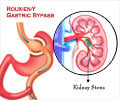
Bariatric surgery is the procedure used to treat severe obesity by reconfiguring the gastrointestinal tract. This procedure's outcome in terms of weight loss varies significantly from patient to patient, even though it is the most effective treatment for severe obesity.
Understanding why some patients benefit more than others from the procedure will help estimate what to expect from the surgery for a given patient and decide whether to perform it at all.
While it is certain that surgery induces a decrease in food consumption, biological mechanisms that underlie this behavioral change remain unclear. For instance, the surgery might lead to changes only in the sensory reward experience gotten from tasting calorie-rich and sweet food.
However, it might also be the result of changes at the psychological level, where the reward derived from eating this type of food is linked to the activation of reward centers in the brain itself. Hedonic hunger refers to this susceptibility to food stimuli present in the environment.
The authors state that in their hypothesis, the primary independent variables were the mean intensity and pleasantness ratings (of sweetness) along with the scores for hedonic hunger and addiction-like feeding behavior.
The study aimed to determine if it is possible to predict the magnitude of post-surgery weight loss by performing sensory and psychological measures of food reward before the surgery.
Albino Oliveira-Maia, lead co-author, says, "The main objective of the study was to understand if these pre-surgical measurements predicted the amount of weight lost approximately one year after surgery."
Psychological and sensory measures of food reward were collected before weight-loss surgery in many patients with obesity across several Portuguese hospitals. These measurements were also repeated after the surgery.
The measurements were performed through questionnaires and sensory ratings of taste, including the intensity and the pleasantness of sucrose experienced by the patients. Follow-up was done more than one year after surgery.
In the control group (non-surgical treatment), 50 patients completed a single follow-up visit two to 18 months after the initial visit. In comparison, 96 patients were followed up at 3 to 6 months and 11 to 18 months after surgery in the surgical group.
Findings showed that both sweet intensity and hedonic hunger predicted the amount of weight lost approximately one year after surgery.
Gabriela Ribeiro, first author of the study, says, "Since our main hypothesis was that variability in reward-related feeding behavior would predict weight loss after surgery, our results corroborated our hypothesis."
However, the scientists found three surprises in the results.
First, for patients with higher levels of hedonic hunger, the surgery was less effective. For patients with higher sensory sensitivity levels to food reward, the surgery was more effective, i.e., the associations occurred in opposite directions.
Second, only changes in sweet taste intensity perception were associated with the magnitude of weight loss, but not the sweet taste's pleasantness.
Finally, the patients who had the most weight loss after surgery were also those with greater sweet intensity perception reductions.
Source-Medindia














